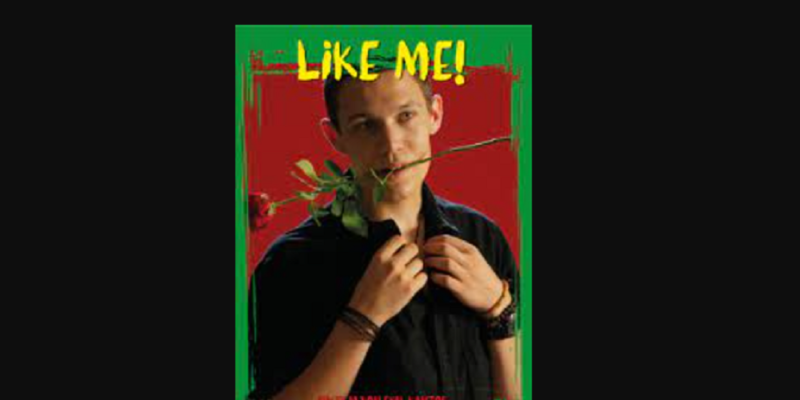Intricate, purposeful and vastly atmospheric – devotedly professional yet heartfelt compositions, with spacious, thoughtful sound-design, and occasionally euphoric electronic peaks. These qualities combined tell the unique story of Like Me, throughout Itay Amram’s Original Motion Picture Soundtrack of the same name.
Here we talk with the artist to delve a little deeper into the journey behind the project, what it all represents, what inspired it, and how the music came to be.
* * *
Like Me has track titles that feel like they encapsulate a high school or college experience- between the classic novel reference and titles like “Graduation” and “Bike Rides” and various themes of fantasies, I wonder, is Like Me a concept album of sorts? What story did you intend to tell with it?
All the tracks were written for the film “Like Me” (2022), directed by Eyal Kantor, and sorted by the order of their scenes. The film deals with the challenges of modern LGBT teenagers to find intimacy and live an authentic version of themselves. The film tells the story of Tom, a high school senior who falls in love with his best friend Gilad while finding himself in a demanding relationship with an older photographer.
“The film deals with the challenges of modern LGBT teenagers to find intimacy & live an authentic version of themselves.”
Dorian Gray is one of my favorite classical novels. Can you tell us a bit more about what inspired you to write this track in particular?
We hear this track during the school theater class’s final performance of the play “The Picture of Dorian Gray” based on Oscar Wilde’s novel. In the film “Like Me” we initially perceive the score as source music, played by a pianist that accompanies Tom and Gilad during their performance, but the score actually plays the emotional tension between Tom and Gilad, as the dialogue from the play resonates with their own relationship.
What type of content do you enjoy scoring for the most, and why?
I like scoring content that its subtext takes the lead role, like the tracks “Almost Caught” and “Almost Revealed” from the parts where Gilad almost caught Tom’s real desires and Tom almost revealed Gilad’s secret to his family. In these scenes, the music plays the feelings that aren’t expressed in the dialogue. I also enjoyed scoring the party scenes that allowed me to write in fun styles that are less common in film music, like the trance track “Graduation”.
Do you have a favorite instrument to write for?
In my recent films, I tend to write for guitar in a way that each note can be straight or reversed to get a similar expressive phrasing of a cello. Another instrument that I use extensively is the Ney flute with effects because it has uneasy and beautiful airy qualities.
How have your compositions been influenced by Arabic music? Do you have a favorite melodic mode/ maqam you like to use?
I love traditional Arabic music, but unless the project calls for it, I’ll borrow specific qualities from the style that blends with other elements. For example, in “Captured” I played the Oud and Ney in different ways and shape them with effects and in the track “Seduced” I used an Arabic rhythm on synth percussions. I like the microtonal Maqamat but the one that is most useful in western projects is the Kurd.
Who is your favorite Israeli composer or songwriter and why?
Out of many favorite artists, if I pick the one that I inspiring me the most it would be Dudu Tassa. His creation always evolving and not limited to any genre, which includes some of Israel’s greatest hits, as well as hybrid experimental albums of rock, electronica, Arabic music, and poets. Tassa also created three albums of The Kuwaitis project which modernized brilliantly traditional Iraqi music, but what’s common to all of his songs is the soulful singing from heart to heart.
Do you prefer to start your tracks with bass lines, or melody lines?
It changes in every piece especially when I start from inspiration, but if I start from intention, it usually depends on the main purpose of the track. If it needs to be emotional, catchy, or thematic I’ll start with the melody, if it needs to move you, be fun or energetic I’ll start with drums or bass, and if it’s supposed to be tense, mysterious, or has a special feeling I’ll start from creating a cool sound. That said, it will only be the starting point of the track which will end up with whatever works.
What instrument to you primarily compose on?
I mainly compose by singing and imagination. I start singing the main idea and imagining the main parts. After I know the vibe that I’m aiming for I’ll continue developing it on the piano and build the parts in Cubase.
Lastly, if you could turn any novel into a film score, which book would you choose?
I’m not a huge book reader, so from my limited repertoire, I would choose to score The Alchemist by Paulo Coelho. The solo spiritual advantage in nature with middle eastern style sounds perfect to me.
* * *

